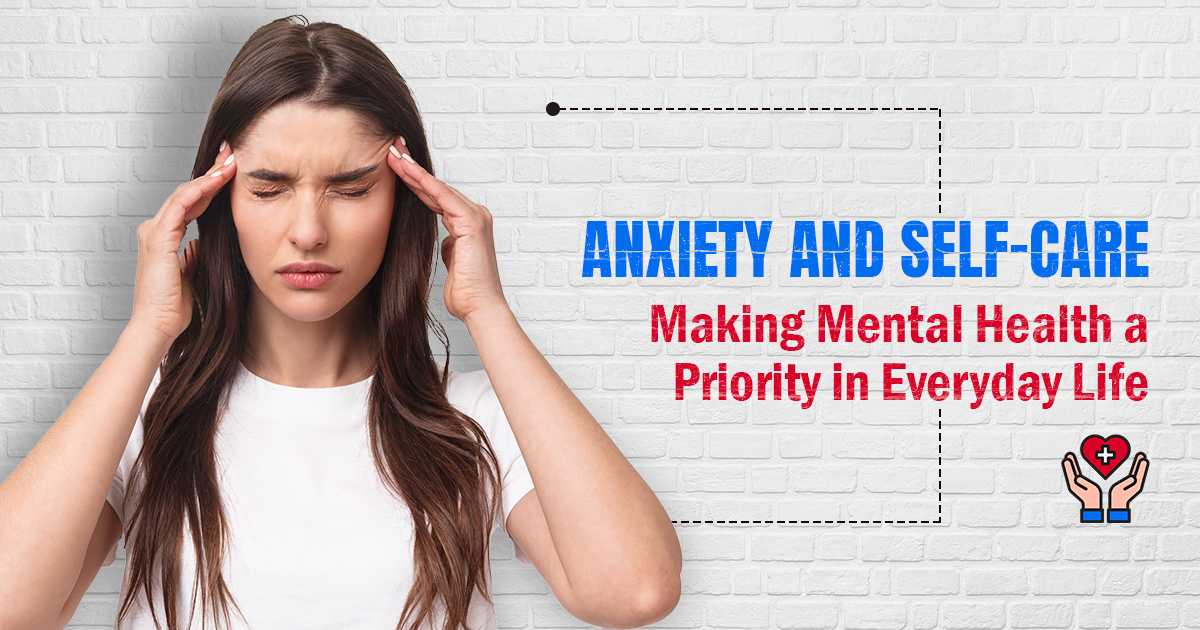“You can’t give what you don’t have,” this means you have to first take care of yourself in order to take care of others, including those you love the most. And when we say take care of yourself, it means your overall health, including mental health.
Mental well-being entails emotional, psychological, and social welfare. It affects how you think, feel, behave, make decisions, and connect with others. According to the National Institute of Mental Health, approximately one out of five adults lives with a mental illness.
Several factors contributing to mental health conditions are:
- Life incidents, such as trauma or abuse.
- Biological factors, such as brain chemistry, genes, and others.
- Mental illness problems in the family history.
What Is Mental Health?
Mental health includes psychological, social, and emotional well-being. It affects how we feel, think, and act and helps determine how we make choices, handle stress, and relate to others.
Mental well-being is vital at every stage of our life, from childhood and teenage through adulthood. If you experience mental health issues throughout the course of your life, your behaviour, thinking, and mood could be affected.
According to the WHO (World Health Organization), “Mental health is a state of mental well-being that lets people cope with the stresses of life, learn their abilities, comprehend well and work well, and contribute to their community.”
Anyone can struggle with their mental illness. However, if left untreated, feelings like anxiety or depression can increase and shatter your life. Emotional health conditions can harm or hurt your relationships with your family, friends, and co-workers.
Why Take Care Of Your Mental Well-being?
Mental and emotional health is essential because it is an important part of life and impacts behaviours, thoughts, and emotions. Being emotionally healthy can promote effectiveness and productivity in activities like school, work, or caregiving. It plays a vital part in our relationships and helps us adapt to lifestyle changes and cope with hard times.
How To Take Care Of Your Mental Health?
It’s not always easy to take care of your mental well-being or to know where to begin. There are numerous ways in which you can take care of your emotional well-being. What matters the most is what works best for you and your mental well-being, so we encourage you to explore multiple ways to keep your mind in a healthy state.
- Find Physical Activities: Exercising is one of the best ways to release stress, tension, and negative thoughts. Even walking for just a few minutes a day can still be helpful. It can also boost your mood, help with decision-making, and improve focus.

Take a 5-minute activity break at least once every hour. You can try stretching, strength training, or aerobic activity. You can also explore nearby and famous places where you can go with your family and friends. This will help you to stay active, physically fit, and happy.
- Be Grateful: Think of the good things that happen to you regularly. It does not have to be grand every time. Be grateful for everything around you, like the good weather, finishing a task, or meeting an old friend. You can also write these down in a diary so you can easily read them when you are not feeling good.
- Respect What You Feel: Don’t be harsh on yourself. We all are humans, and it’s okay to feel certain things. It is also important not to bottle up your feelings. You can try to speak with someone with whom you feel comfortable and have a genuine bond.
- Get Enough Sleep: Sleep plays a major role in your mood. When you do not get quality sleep, you get annoyed faster than normal. Not getting enough sleep on a regular basis can increase the chances of depression and other mental health disorders.

Stick with a proper sleep schedule and avoid things that make it harder for you to fall asleep, such as blue light from devices and gadgets.
- Keep Yourself Hydrated: Keeping yourself hydrated will allow you to stay focused and enhance your energy levels throughout the day. Also, try to limit your caffeine intake because high doses of caffeine will keep you tense and increase nervousness and anxiety.
- Eat Nutritious Food: Another important element in taking care of your mental health is eating nutritious foods. Not getting specific nutrients, like Vitamin B12, can contribute to mental disorders such as depression, so try to eat healthy as much as possible. Additionally, it can help decrease anxiety and stress and elevate your mood.
- Have A Fun Time: If you are still looking for healthy relaxation strategies, you can try breathing exercises, yoga, listening to music, meditation, or journaling. You can also make a proper schedule for the activities that work best for you.
- Do Something Creative: Try to do something creative, like baking, drawing, or taking photos. This can help distract you from disruptive feelings or thoughts. Trying something creative might also help you express difficult things or understand yourself better in a safe way. Being creative can also make you feel rewarding and calming.
- Connect With Others: To improve your mental health, one of the best things you can do is to connect with others. Try to talk with someone you trust the most. That person can be anyone, be it your friend, colleague, or family member. You can also call a helpline or listening service because sometimes we all need a person to just hear our thoughts without saying anything.
When To Seek Professional Help?
Just like physical well-being, seeking care early can help you prevent multiple types of mental health disorders. Kindly see a doctor if you experience any of the following signs for a prolonged period of time (two weeks or more):

- Changes in appetite, resulting in considerable weight loss or weight gain.
- Sleeping disorders.
- Severe mood swings.
- Don’t want to get out of bed.
- Notable changes in behaviour, i.e. angry outbursts.
- Difficulty in concentrating.
- Negligence in grooming or hygiene.
- Not being able to perform daily tasks or responsibilities.
- Loss of interest in doing the things you used to love.
In Last
It is not always simple to take care of your mental health, but we can surely find ways to help ourselves feel better. Remember that good days won’t always look the same. We do not always have the exact same energy or motivation levels. So, it’s important to be kind to yourself and do what makes you happy.
Stay Happy and Stay Healthy!
FAQ’s
Mental health comprises psychological, emotional, and social well-being, affecting the way we think, feel, and act.
Connect with others, eat nutritious foods, stay physically active, do something creative, and be grateful for everything.
The 4 types of mental health are mood disorders, anxiety disorders, psychotic disorders, and personality disorders.
Also Read About: Ayurveda Herbs: Check the Benefits and Uses




